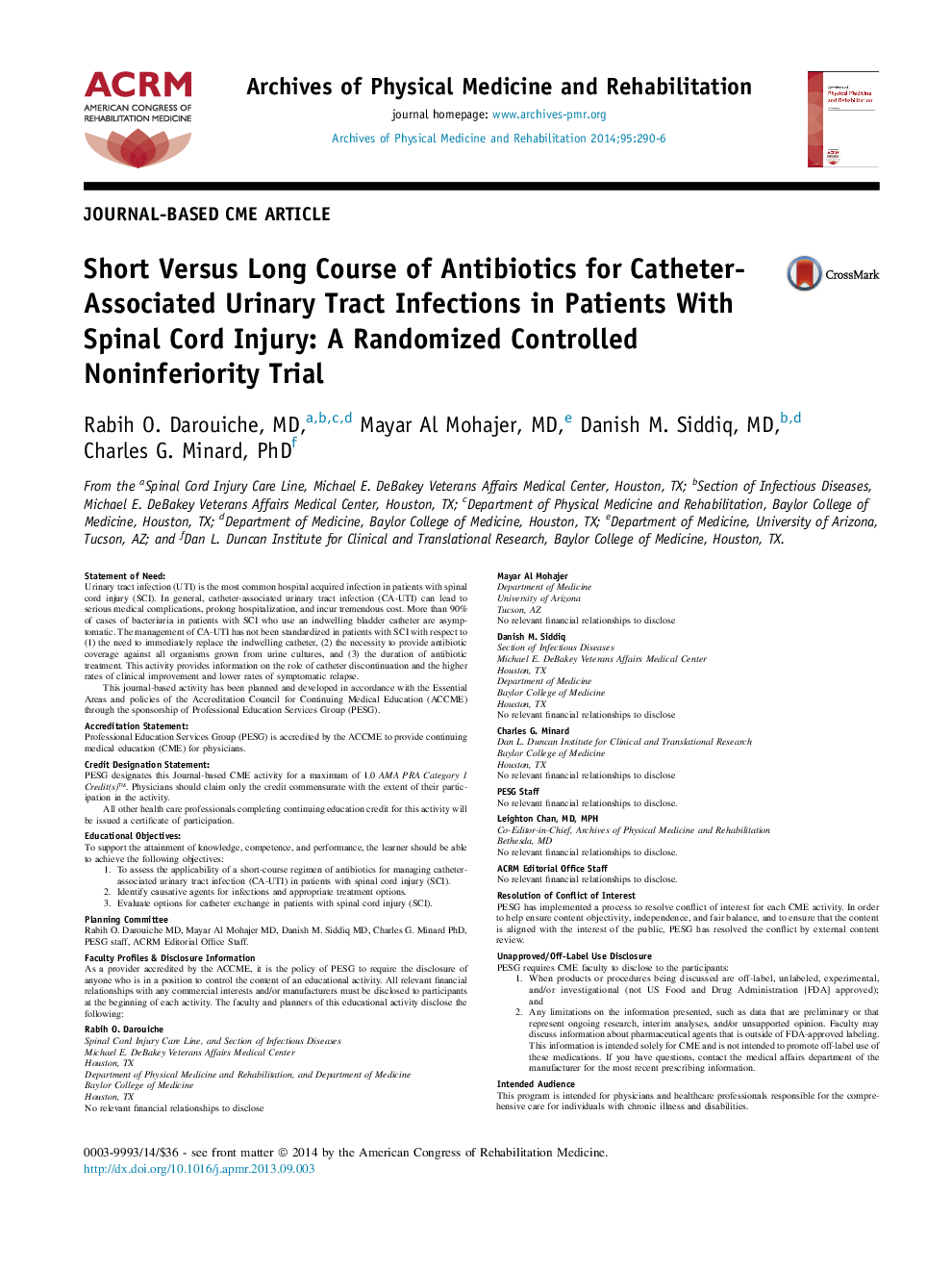| Article ID | Journal | Published Year | Pages | File Type |
|---|---|---|---|---|
| 3449040 | Archives of Physical Medicine and Rehabilitation | 2014 | 7 Pages |
ObjectiveTo assess the applicability of a short-course regimen of antibiotics for managing catheter-associated urinary tract infection (CA-UTI) in patients with spinal cord injury (SCI).DesignRandomized, controlled, noninferiority trial.SettingMedical center.ParticipantsPatients with SCI who had CA-UTI (N=61).InterventionsPatients were randomized to receive either a 5-day regimen of antibiotics after catheter exchange (experimental group) or a 10-day regimen of antibiotics with catheter retention (control group). Noninferiority was prespecified with a margin of 10%.Main Outcome MeasureClinical cure at the end of therapy.ResultsOf the 61 patients enrolled in this study, 6 patients were excluded because of bacteremia or absence of urinary symptoms. All patients (100%) achieved clinical cure at the end of therapy. The rates of microbiologic response were 82.1% in the experimental group and 88.9% in the control group (upper boundary 95% confidence interval (CI) for difference, 26%). The rates of resolution of pyuria were 89.3% in the experimental group and 88.9% in the control group (upper boundary 95% CI for difference, 16%). Patients in the experimental group had higher rates of CA-UTI recurrence than the control group. The rates of new CA-UTI, diarrhea, and Clostridium difficile colitis were similar in the 2 treatment arms.ConclusionsThe primary endpoint of the study was met, indicating that the 5-day regimen with catheter exchange was noninferior to the 10-day regimen with catheter retention on the basis of clinical cure. Criteria for noninferiority on the basis of microbiologic response and resolution of pyuria were not met.
